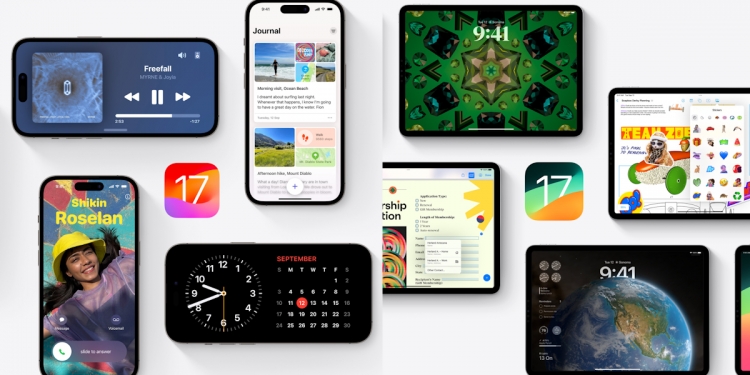The iOS 17 is now available to iPhone users in Malaysia as part of its global release last night. Officially revealed to the world back in June during the Apple Worldwide Developers Conference (WWDC), the release coincides with the upcoming rollout of iPhone 15 and iPhone 15 Pro devices which was launched last week at the company’s Wonderlust event.
Aside from iPhone users, Apple is also rolling out a major update to iPad users in the form of iPadOS 17. If you are ready to have the new update on your devices, just follow the simple instructions below.
How to download iOS 17/iPadOS 17 to your iPhone and iPad
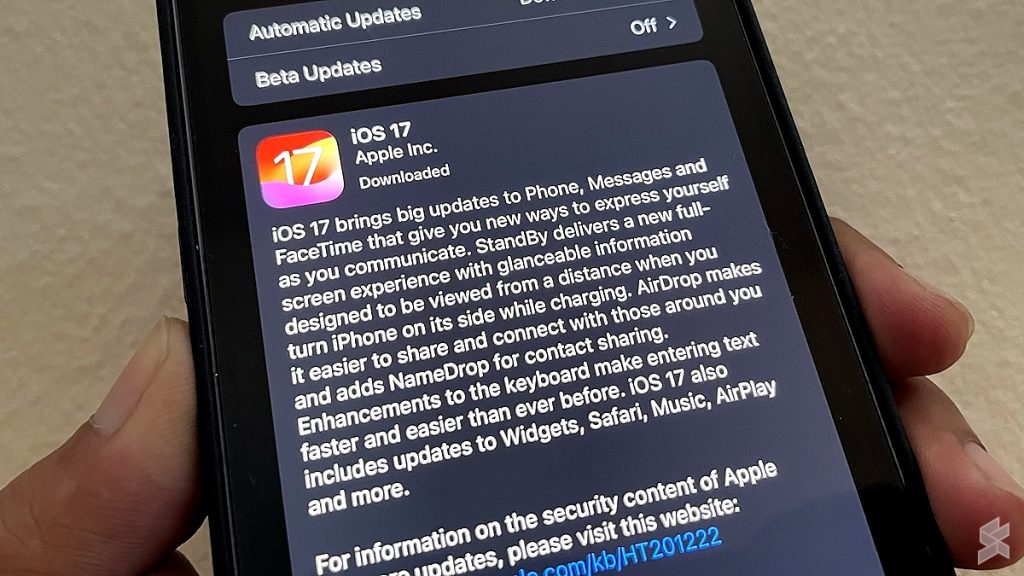
As always, it is a good habit to perform a full backup on your device before embarking on a major update. You can perform this directly on your iPhone and iPad through the iCloud option.
Alternatively, you can also perform backup using iTunes via your Mac or PC. Of course, do check out the differences between both types of backup before going further.
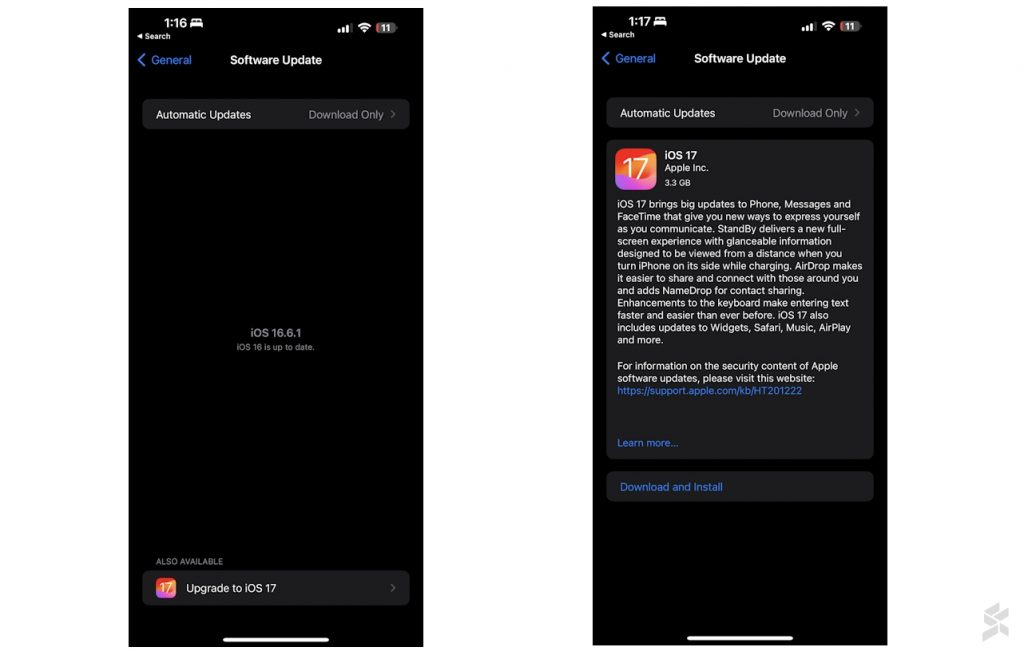
Once you have done that, go to your iPhone or iPad’s Settings > Generals > Software Update. If your iPhone is fully up-to-date and running on iOS 16.6.1, you should see the “Upgrade to iOS 17” on the bottom part of your screen.
Click on that and tap on the “Download and Install” option in the subsequent screen. The same general instructions also apply to iPad as you should be able to spot the “Upgrade to iPadOS 17” option on the bottom of your screen inside the Software Update section.
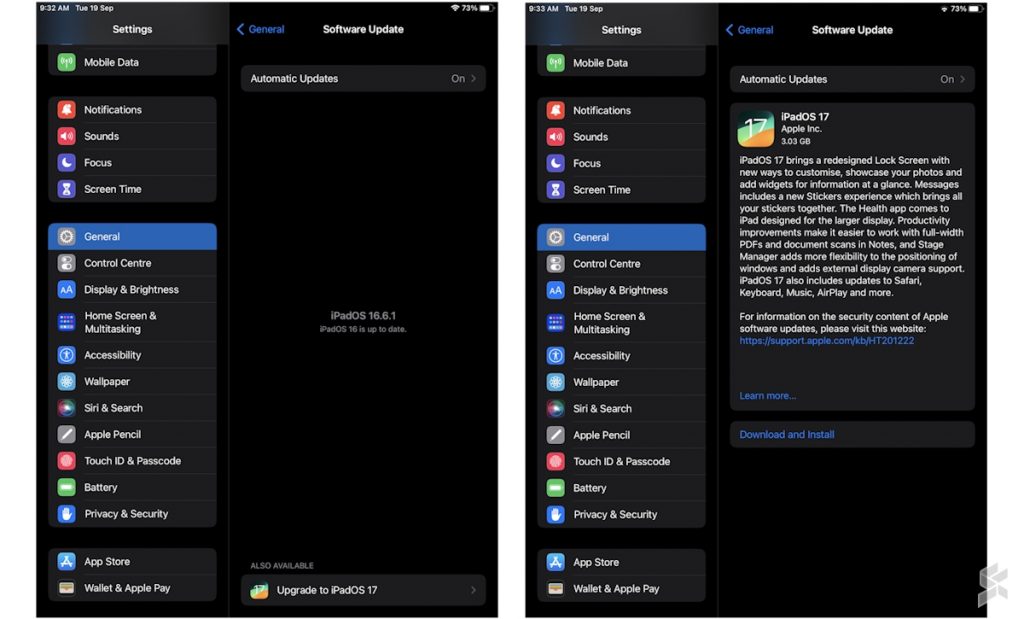
Regardless of whether you are on iPhone or iPad, the file size for iOS 17 and iPadOS 17 is more than 3GB. Hence, you may want to make sure that your device is connected to Wi-Fi in order to download the update.
In addition to that, you also might want to clear out some space in your device to make room for the update. Not to forget, make sure that your iPhone or iPad have sufficient battery charge or better still, just connect it to the charger during the update process.
Compatible devices
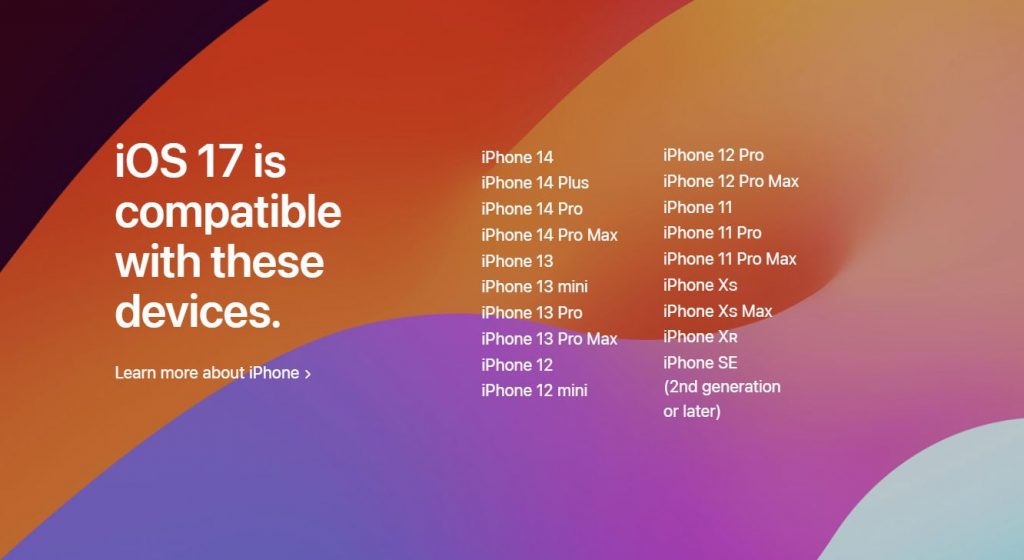
For iOS 17, the list of compatible devices starts with iPhone XS, XS Max, and XR which were launched back in 2018. In addition to that, the budget-oriented 2nd generation iPhone SE that was released back in 2020 is able to support iOS 17 as well.
When compared with the iOS 16 compatibility list, this means the end of the road for iPhone X, iPhone 8, and iPhone 8 Plus. All three devices were launched in 2017, so they have been receiving almost six years of major iOS updates.
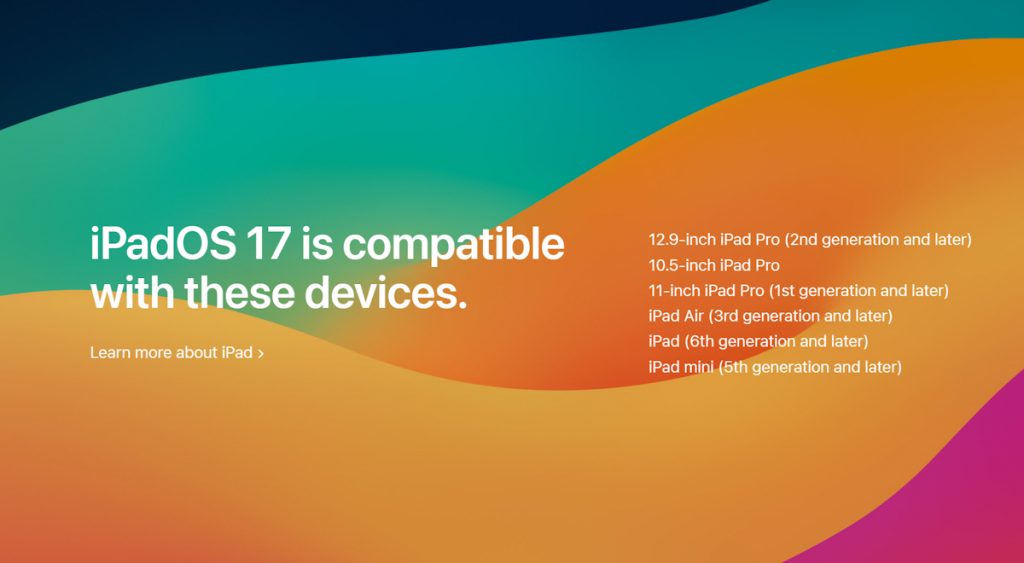
As for iPad, three previous iPadOS 16 models including the iPad 5th generation, iPad Pro 9.7-inch, and iPad Pro 12.9-inch 1st generation are not able to support the new iPadOS 17. If you own any of these models, your path has ended at iPadOS 16.6.1.

